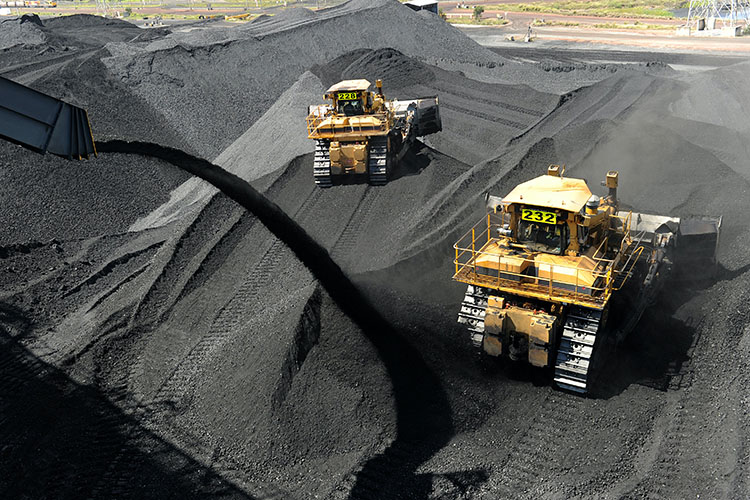
The price of Australian thermal coal is higher than coking coal, showing how much the global polluting fuel market has been upended by Russia’s invasion of Ukraine.
A key item remains the annual contract prices negotiated between Australian mining companies and Japanese utilities in a hidden process that sets the price of thermal coal for much of Asia.
In general, the spot price is the price of last resort, as it is paid only by those buyers who are desperate to secure supplies at any cost.
The bulk of thermal coal exports from Australia, the second largest fuel supplier after Indonesia, are valued under annual contracts between mining companies and Japanese utilities.
The most watched one-year thermal coal supply contract from Australia is between mining company Glencore and Japan’s Tohoku Electric Power.
The two companies did not disclose the details of the deal, but the settlement price is usually leaked out and is followed by much of the market for other countries.
So far, no deal appears to have been reached between Glencore and Tohoku, with the parties, according to analysts, disagreeing by about $100 a ton on Glencore’s demand.
Last year, the contract was awarded at just under $110 per tonne, up from $68.75 in FY 2020-21.
This year, there is speculation that Glencore originally wanted $400 a tonne, while Tohoku was closer to $150, and negotiations were able to close the gap but hardly closed it.
If an agreement is eventually reached, the new price will be significantly higher than in 2021-22, meaning that electricity prices are likely to rise in Japan, as well as South Korea and Taiwan, which also use Australian power. coal.
However, it is also likely that the agreed price will be slightly below the current exorbitant spot prices.
Learn how to trade coal and other commodities with Top Forex brokers in Australia
SPOT PRICE GROWTH
There are several anchor points for the spot price of Australian thermal coal, with the main physical price being estimated by globalCOAL.
The cost of thermal coal in the Australian port of Newcastle on Monday was estimated by globalCOAL at $415.75 per tonne, up 4.56% from the previous day.
The company also said there were no physical transactions this week.
Newcastle coal futures closed at $392.45 a tonne on Monday, up from $397 on June 24.
The price of the futures on Monday was 10.8% below the all-time high of $440, which was reached after Russia’s invasion of Ukraine on February 24. The war raised concerns about the future of supplies from Russia, the world’s fourth-largest coal exporter.
Monday’s price also means ICE’s thermal coal contract is trading above Australian coking coal contracts in Singapore, which closed at $373.50 a tonne on Monday.
From the launch of Singapore Coking Coal (OTC:SPXCY) futures in 2014, they traded at a premium to Newcastle ICE thermal coal contracts until June 1 this year, when they went discount.
Steam coal has risen in price by 243% in 12 months, outpacing the increase in contracts for coking coal by 155%.
Australian spot Newcastle coal is also trading at about eight times what it was in mid-2020, when prices plummeted amid the outbreaks of the COVID-19 pandemic.
The price has reached its current elevated level due to strong demand from Europe, which is starting to buy sea coal from South Africa and even Australia as imports from Russia cease.
Electricity shortages in India and Japan, the world’s second and third largest coal importers, have also pushed up demand and prices.
Although some transactions will be done using global COAL physical prices or ICE futures prices as a benchmark, this will be negligible compared to annual contract cargo prices.
Subscribe for our newsletter
Get Forex brokers reviews, market insights, expert analytics and education material right into your inbox for free!